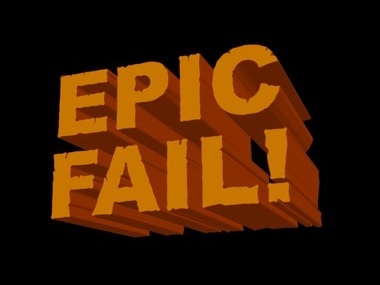Maybe it’s that growing spare tire that hangs over your belt. Maybe it’s that cluttered desk that’s quickly becoming a quagmire of misplaced objects. Or maybe it’s the fact that you’re spending another Friday night at home alone. Everyone has their own goals in life. Usually when we start to work toward a goal, we try to make some sort of dramatic and sweeping change. We’ll vow to exercise every day and to adhere to an extreme diet. We might spend an entire weekend de-cluttering everything. Or we might decide to go to a social event and make a point to have a conversation with every person there. Radical and sweeping changes make us feel like we are making progress toward something. We feel like we’re shaking things up and changing our lives for the better overnight. However, they rarely last.
Why Massive Action Sets the Stage for Failure
We all have a certain inertia that helped us originally get to this dissatisfying point in our lives. A collection of habits and beliefs accumulate and result in that extra weight, the messy house, or the lack of friends. Doing something big and dramatic might make you feel better — and it might get you a bit of instant gratification. But rarely does this massive action overcome the inertia. Slowly the diet becomes filled with “just the occasional” trip to the drive-thru. The organization system becomes sidelined because you “just don’t have enough time” to file those papers right now. Or the bold steps to make more friends become bogged down because you’re “having a bad day” and can’t be bothered to make small talk. Before you know it, you’re right back to where you started. And you’re probably kicking yourself as well, thinking that you just don’t have what it takes. So if huge dramatic efforts don’t always help make lasting change, what is an alternative?
Take the Smallest Action
This idea is popularly known as Kaizen, a Japanese term that advocates continuous improvement through very small changes. Small actions may also be less intimidating than committing to a huge heroic effort that often leaves you less productive. They meet with less internal resistance because they are so easy and painless. Small actions don’t conjure up feelings of dread at the thought of giving up your favorite guilty pleasures or condemning yourself to perpetually doing something makes you uncomfortable. So, you might throw out one bite of an unhealthy meal before eating it to lose weight. You might take one misplaced object on your desk each day and put it where it belongs. Or you might make eye contact with one stranger every day.
How Smaller Actions Have a Bigger Impact
These steps may not seem like they would make much of an impact, but they can start to dissolve the habits and beliefs that got you into trouble in the first place. You can start to practice better portion control by not eating on everything on your plate. You can begin to make organization a habit by doing a small amount of cleaning every day. Or you can get used to interacting with people in a small way to overcome the initial resistance. And gently changing the beliefs and habits that got you into trouble in the first place is going to have a much bigger impact than trying to push against them and blast through them. I’ve used small actions to help me reach goals in the past, and what I’ve discovered is that they can erode initial resistance and help to change habits and beliefs in a way that massive actions sometimes cannot. If you’ve failed at reaching your goals by taking large actions, only to find procrastination, fear, or self-sabotage creeping in then maybe you should consider taking small actions instead. What’s one small action you could take today? (Photo credit: Fun 3D Image via Shutterstock)
